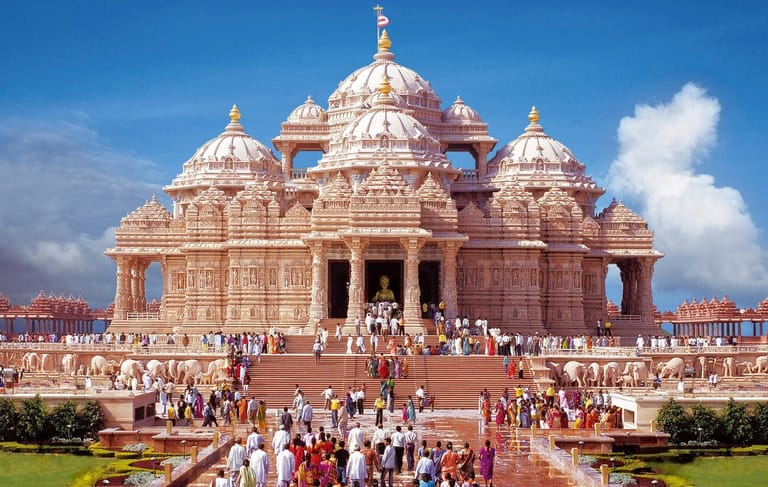
Akshardham Temple: The Largest Hindu Complex in Gujarat
Table of Contents
Table of Contents
- Exploring Akshardham
- History of Akshardham Temple
- Architecture of Akshardham Temple
- Garbhagriha
- Swaminarayan Darshan
- Preserving Through Prasadi Mandapam
- Abhishek Mandapam
- Exhibitions of Akshardham Temple
- The Water Show
- Best Time To Visit Akshardham Temple
- Timings of Akshardham Temple
- Conclusion:
Exploring Akshardham
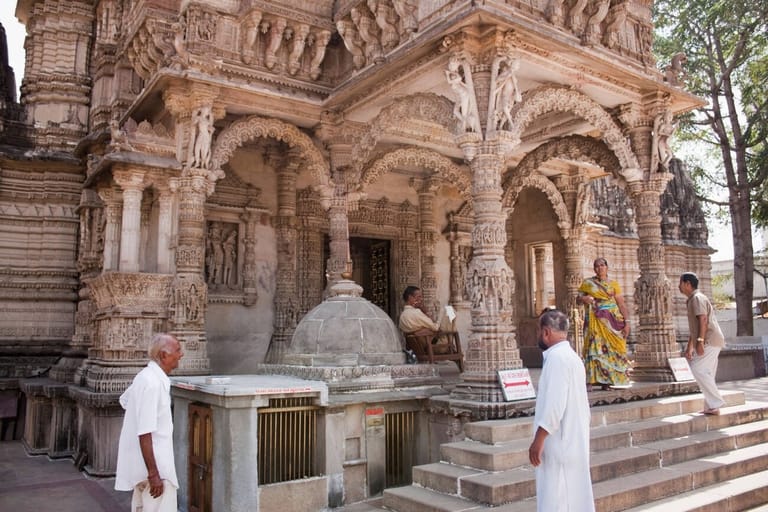
Suggested read : 15 Best Things To Do In Gujarat
History of Akshardham Temple
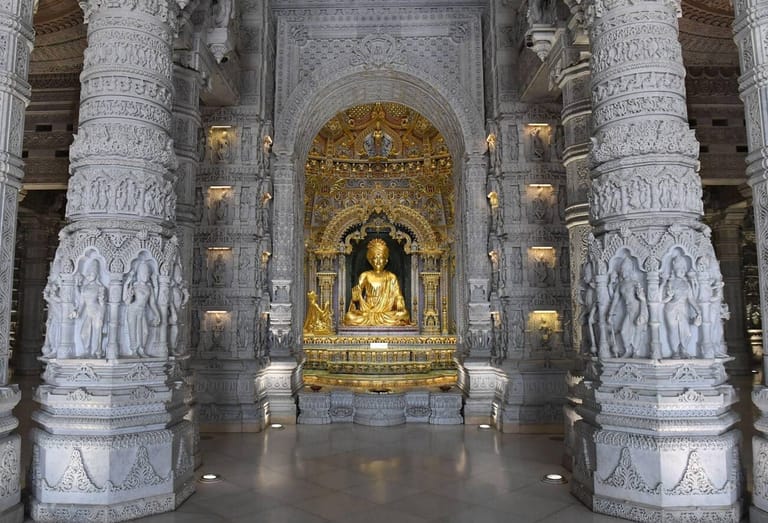
Architecture of Akshardham Temple
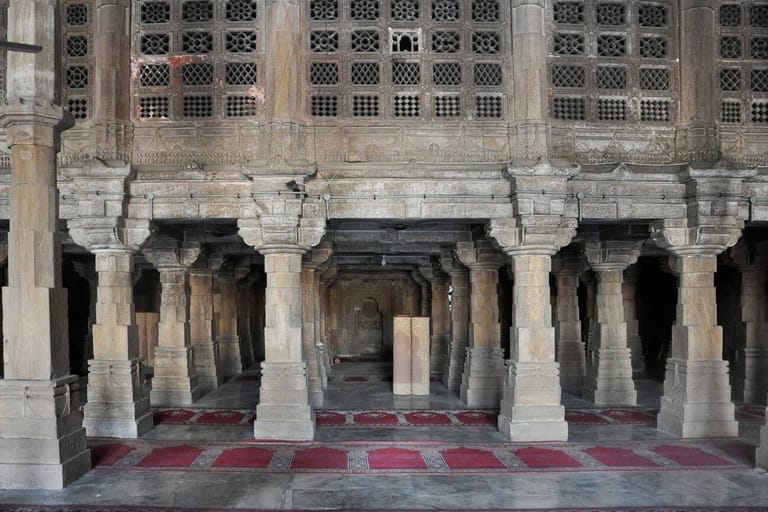
Suggested Read: 15 Best Gandhinagar Tourist Places
Garbhagriha
Swaminarayan Darshan
Preserving Through Prasadi Mandapam
Abhishek Mandapam
Suggested Read: Himalaya Mall
Exhibitions of Akshardham Temple
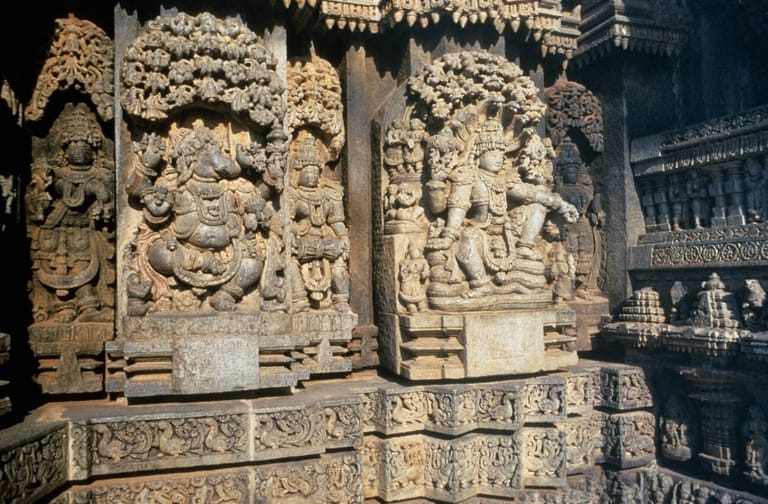
The Water Show
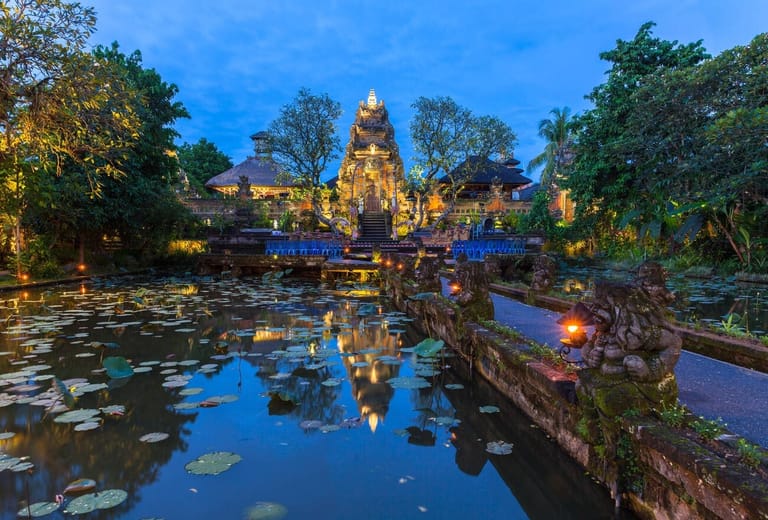
Best Time To Visit Akshardham Temple
Timings of Akshardham Temple
Conclusion:
Get exclusive travel insights & updates into your inbox!
*By clicking subscribe you'll receive emails from WanderOn.

Shrutika Parab
★★★★★24 May 2024
“Thank you Team Wanderon for the amazing Ladakh Experience. Right from the point of making the bookings with Mr. Chakshu to the point of completion of the trip received amicable support.

Sonal Shekhar Dash
★★★★★9 May 2024
“I did my first solo trip in India with WanderOn. Initially I was sceptical about their Meghalaya-Kaziranga trip as I didn't have any prior experience with them but the team assured me that it's going to be one of the best experiences of my life.

Archana Awati
★★★★★30 Apr 2024
“In Ladakh, find the perfect blend of culture, adventure, and serenity. December last year I decided that my next trip would be Ladakh but didn’t know how to go about it. I knew I wanted to travel in a group, as I had prior experiences of traveling in a group but wanted an organiser I could trust. Ladakh isn’t like other destinations wherein you need some instructions due to the high altitudes.

Kartik Dilawari
★★★★★4 Jul 2024
“After an amazing trip to Tirthan with WanderOn, I decided to go to Manali-Jispa with them and yet again, the experience was worth every penny. The place was very beautiful and the quality of service was top-notch, the itinerary was very good and the quality of transportation and stays were very good. Had an awesome time there and made some good friends as well. Lastly, our trip captains Priyasha and Rachit managed the entire trip very well and were so fun and made our trip an experience worth remembering.
FAQ'S
01
Is Akshardham Ahmedabad worth visiting?
Yes. Visiting Akshardham in Ahmedabad will teach you about the spiritual significance, ancient Indian cultures, exhibitions, architecture, and the best water show in the evening.
02
Which God is in Akshardham Gandhinagar?
03
What is Akshardham Gujarat famous for?
WanderOn Special

WANDERON EXPERIENCES PVT LTD
CIN-U63040HR2019PTC118957
3rd Floor, Building No-436, Phase IV, Udyog Vihar, Sector-18, Gurugram, Haryana-122015
Where do you want to go next?


